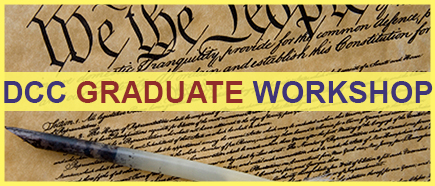College Hall, Room 209 (Accessibility)
Lunch provided.

"Constructive "Consent": A Dangerous Fiction"
Tom Leavitt (Political Science, Columbia University)
"Rational Decision Theory and Its Implications for Normative Defenses of Democracy"
BETH'S PAPER OBSERVES THAT WHILE OFTEN REQUIRING PRESCRIPTIVE CONSENT (consent as we normally think of it), we occasionally treat agents as if they have consented when we know they have not. In other words, we impute consent to them, knowing that the consent is fictitious. This paper focuses on a practice alleged to be such fictitious, or imputed, consent: constructive consent. By examining constructive consent in law (specifically monitoring inmate phone calls and BAC testing) and daily life (normal physical contact in public spaces), it shows that our justification for treating agents as if they had consented in these cases is not grounded in autonomy but instead in other moral values. Because these other values may conflict with instead of respect autonomy, we ought not confuse these cases with consent and, preferably, be explicit that these cases do not involve consent and its common justification.
TOM'S PAPER SYNTHESIZES THE DEBATE BETWEEN PROCEDURAL AND EPISTEMIC DEFENSES OF DEMOCRACY and, in contrast to extant theories, develops a normative decision theory that accounts for both the procedural and epistemic value of democracy. The formal results of this decision theory yield the conditions under which democracy is preferred to nondemocracy and vice versa. This decision theory is nevertheless based on the standpoint of an ideal, moral, third-person observer; hence, the content and grounding of preferences (as opposed to only their structure) over political systems carry deep implications for whether a given polity ought to be democratic or not.

 The Andrea Mitchell Center for the Study of Democracy
The Andrea Mitchell Center for the Study of Democracy